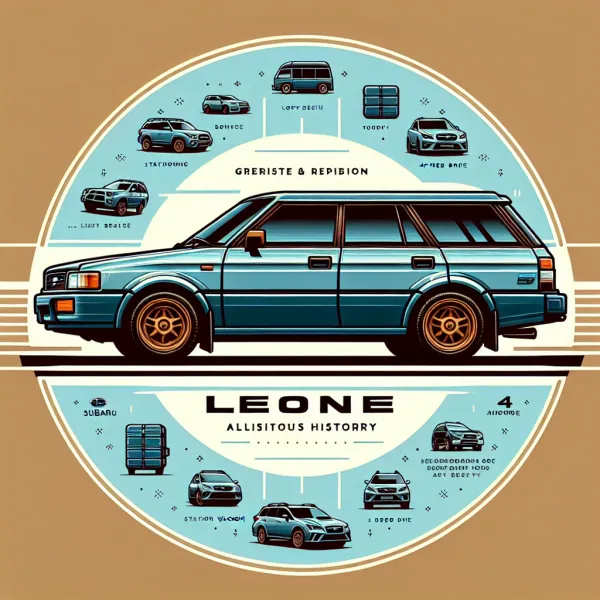The Legacy of the Subaru Leone: A Pioneer in Automotive History
The Legacy of the Subaru Leone: A Pioneer in Automotive History
The Subaru Leone is more than just a car; it’s a symbol of innovation, reliability, and the enduring spirit of Japanese engineering. First introduced in 1971, the Leone played a pivotal role in establishing Subaru as a global automotive powerhouse. With its unique features and forward-thinking design, the Leone remains a beloved classic among car enthusiasts worldwide.
A Brief History of the Subaru Leone
The Subaru Leone debuted in 1971 as a compact car designed to meet the growing demand for fuel-efficient and practical vehicles. It was available in various body styles, including a sedan, coupe, and station wagon, catering to a wide range of consumer needs. The Leone was also one of the first cars to popularize the use of all-wheel drive (AWD) in passenger vehicles, a feature that would become synonymous with the Subaru brand.
Over its production run, which lasted until 1994, the Leone underwent several updates and redesigns. Each generation brought improvements in performance, safety, and comfort, solidifying its reputation as a reliable and versatile vehicle.
Key Features That Set the Subaru Leone Apart
- All-Wheel Drive: The Leone was one of the first mass-produced cars to offer AWD, making it a favorite among drivers in regions with harsh weather conditions.
- Boxer Engine: Like many Subaru models, the Leone featured a horizontally opposed boxer engine, which provided a lower center of gravity and improved handling.
- Fuel Efficiency: At a time when fuel efficiency was becoming increasingly important, the Leone delivered impressive mileage without compromising performance.
- Versatility: With multiple body styles and configurations, the Leone appealed to a broad audience, from families to outdoor enthusiasts.
The Leone's Impact on Subaru's Legacy
The success of the Subaru Leone laid the foundation for many of Subaru’s future innovations. Its pioneering use of AWD set the stage for models like the Subaru Outback and Forester, which continue to dominate their segments. Additionally, the Leone’s focus on reliability and practicality helped Subaru build a loyal customer base that remains strong to this day.
“The Subaru Leone was a trailblazer in its time, combining practicality with groundbreaking technology. It’s no wonder it remains a cherished classic.”
Why the Subaru Leone Still Matters Today
Even though production of the Subaru Leone ended in 1994, its legacy lives on. Classic car enthusiasts continue to celebrate the Leone for its innovative design and enduring reliability. Restored models are highly sought after, and the Leone’s influence can still be seen in Subaru’s modern lineup.
For those who appreciate automotive history, the Subaru Leone is a reminder of how a single model can redefine a brand and leave a lasting impact on the industry.
Conclusion
The Subaru Leone is more than just a car; it’s a testament to the power of innovation and the importance of meeting consumer needs. From its groundbreaking AWD system to its fuel-efficient design, the Leone set the standard for what a compact car could be. As we look to the future of automotive technology, the Leone serves as a reminder of the ingenuity and vision that have driven Subaru’s success for decades.
